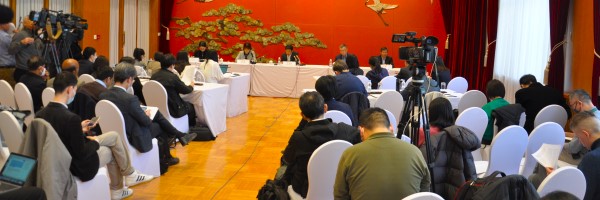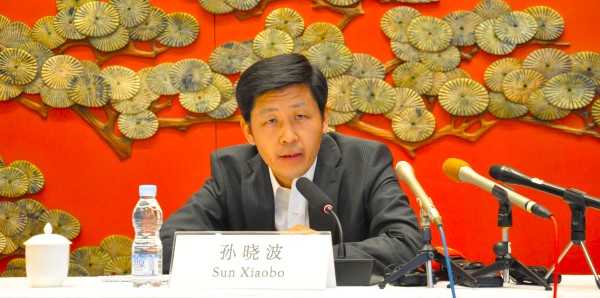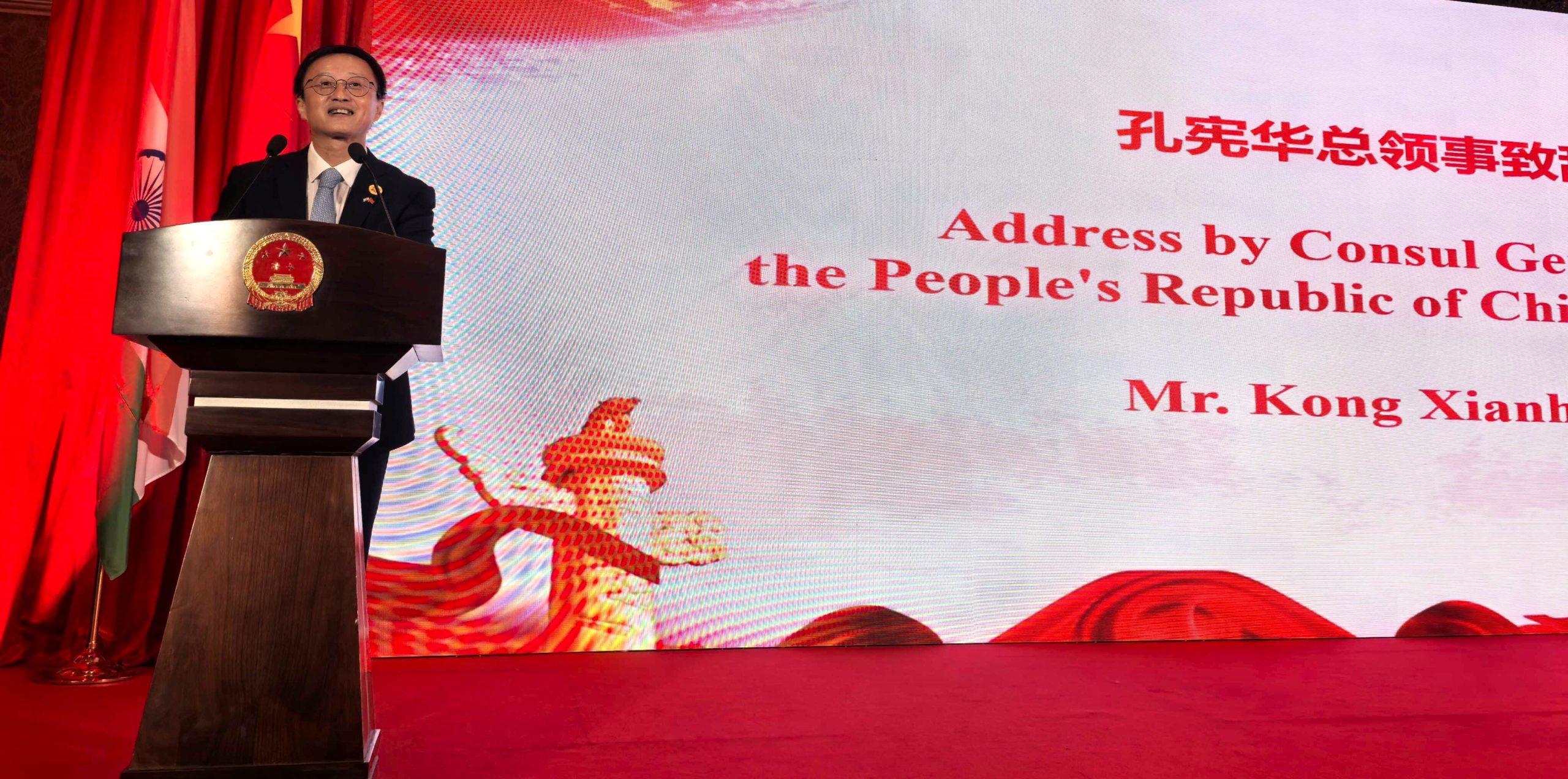Mewati Sitaram – Beijing
Japan’s decision to release waste water from nuclear plants faces widespread criticism. China has opposed the move. In a press meet held at Beijing International Club on March 16, 2023, Sun Xiaobo, Director-General (DG) of the Department of Arms Control of the Foreign Ministry, expressed serious concern and resolute opposition to this. He expressed that the Fukushima nuclear-contaminated water contained a large number of radionuclides. Since many radionuclides have no effective treatment technology, it would cause unpredictable harm to the marine environment and human health. DG Sun Xiaobo was supported by Li Chijiang, Secretary-General of China Arms Control and Disarmament Association and Chief Expert of the Nuclear and Radiation Safety Center of the Ministry of Ecology and Environment Liu Xinhua in the media briefing.
DG Sun further stated that 30-year discharge of nuclear-contaminated water into the ocean would have a cross-border impact on the global marine environment and public health. Several stakeholders like China, the Republic of Korea, Russia, the Democratic People’s Republic of Korea, and Pacific Island states have repeatedly expressed their concerns. Japan, neither engaged in full and meaningful consultations with stakeholders, nor has it provided adequate scientific and credible explanations on the legitimacy of the discharge plan of the nuclear-contaminated water, reliability of data, effectiveness of purification devices and uncertainty of environmental impact.
DG Sun Xiaobo pointed out that the Task Force of the International Atomic Energy Agency (IAEA) has not yet completed the assessment of Japan’s ocean discharge plan, and has not reached a final conclusion. Instead, it has pointed out a series of inconsistencies between Japan’s ocean discharge plan and the IAEA Safety Standards. Nevertheless, Japan still forced the approval of the implementation of the specific plan to discharge nuclear-contaminated water into the ocean in July last year.

Journalists attending press conference
DG Sun Xiaobo further emphasized that Japan should dispose of the nuclear-contaminated water in a safe manner consistent with the obligations of international law, safety standards and good practices from an objective and scientific viewpoint. It should include fully studying and examining other disposal plans other than discharging the water into the ocean. Japan must not start discharging nuclear-contaminated water into the ocean before all stakeholders and relevant international agencies can confirm the safety of the ocean discharge plan.
Li Chijiang and Liu Xinhua respectively elaborated to media on the hazards of the ocean discharge plan of Fukushima nuclear-contaminated water from legal, scientific and professional perspectives, and pointed out that Japan’s discharge of nuclear-contaminated water into the ocean violates international obligations stipulated in general international law and the United Nations Convention on the Law of the Sea.
Journalists from more than 20 mainstream media outlets attended the press meet. These journalists were from the United States,India, Russia, Japan, the Republic of Korea, France, Pakistan and Iran. China Media Group, China Global Television Network

Editor in Chief : Mewati SItaram











